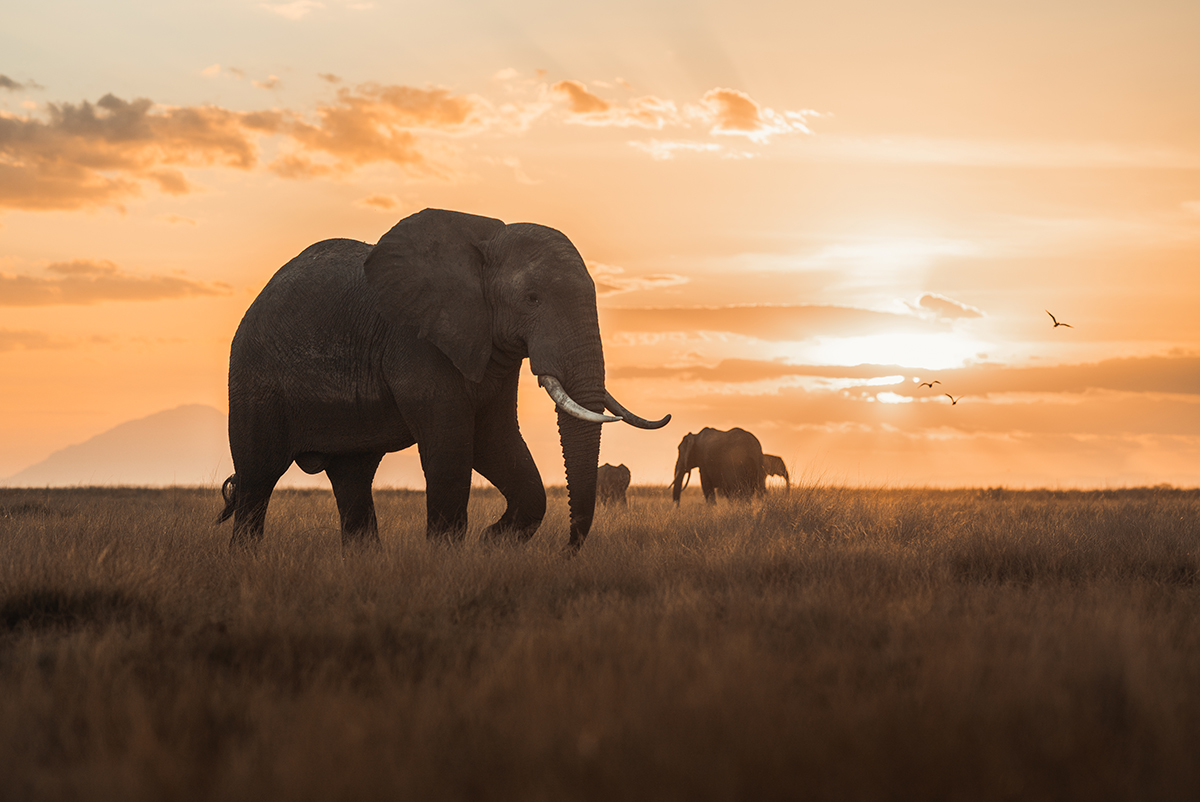two years on from the UK’s ivory ban – elephants are still dying for our domestic trade
two years on from the UK’s ivory ban – elephants are still dying for our domestic trade

Twenty two years ago, in the middle of the night, on a floodplain in the Kilombero Valley in Southern Tanzania, I woke to observe an elephant silently and carefully walk between our tents towards its destination. Being three feet away from four large feet was a moment to remember. Back then the Kilombero had a huge population of elephants who annually moved from the Kilombero and the Selous in a seasonal migration. Even back then, elephant carcasses would appear and dugout canoes covered in tarpaulin hid suspicious shapes headed downstream to the coast to be loaded on container ships and sent on to their destination, never facing a customs officer’s gaze.
At the time, this seemed like the height of the slaughter of these great beasts, but with elephant populations still big enough to buy us conservationists time to halt the practice. As my sun bleached face rose from slumber the following morning, I woke with hope and assurance that things could change. Twenty-two years on, finding a single elephant in the Kilombero at any time of year is a challenge; they are all gone.
In the intervening years, the slaughter increased and became more effective and efficient despite improvements in enforcement, because the demand was still there for Ivory. Now the elephant, like many other species, sits in a precarious position.
Over two years ago now, the UK’s domestic ivory ban legislation made its way successfully through Parliament; there were few who didn’t see this as progress. I certainly felt a sliver of hope return. Yet as the second anniversary of the ban passed in December 2020, we have seen little progress in its actual implementation. As is often the case, the legislation creates the fanfare but when the party is over, the implementation often proves trickier.
The UK really broke ground with its ban, sending a clear message that the slaughter of elephants in the name of vanity and status was no longer acceptable. This catalyzed a movement globally to consider the same measures with various countries such as Australia already putting legislation in place and the EU announcing its own consultation on an ivory ban just days ago.
Despite overwhelming support from the British public, the passage of the UK ban into implementation has already been a long road with challenges repeatedly made by antique ivory dealers, ascending to the highest courts in the land where they were ultimately defeated. The debate has seen all sorts of angles beaten back, from the reuse of old ivory (it can be impossible to tell the difference between fresh and antique ivory when masked) to the impact on jobs within a small sector. While IFAW has sympathy for the livelihoods of antique dealers, any commercial trade leads to the deaths of countless elephants. Continuation of an industry that fuels a cruel and unnecessary trade can’t be justified by any means. As was the case with conflict diamonds, being once or twice removed from the crime doesn’t mean your fingerprints aren’t on the weapon.
As late as the start of 2020 the legal challenges were still being wrapped up and finally we found ourselves in a place to ask about implementation. Defra (Department for Environment, Food & Rural Affairs) has for some time been expected to announce the next step in the process - starting a consultation on implementation of the ban ‘with industry’ and IFAW very much hopes that this will not see further delaying tactics by those involved in the trade. Today we have the Government response to a Parliamentary Question asking for a date for implementation of the ban. While the response stated the Government’s commitment to bringing the Act into force “as soon as practicable”, it noted the need for this further consultation ahead of implementation, on details relating to exemptions and other matters, with the Government planning to publish this consultation “shortly”.
With a nation now in the grip of a dual obsession of combatting COVID and managing Brexit, there is little political bandwidth. However, the UK can provide leadership towards a positive global outcome that is long overdue. As the UK led the way with the ban, it should lead the way with best practice implementation that is both appropriate and swift. For every day that people continue to talk around a table, more elephants meet bullets or are poisoned, and baby elephants watch their parents brutally killed in the name of a trophy or a trinket. Every 26 minutes an elephant loses its life to poaching for the ivory trade; that’s 55 elephants a day, some 20,000 a year. While any legal trade continues, it provides a smokescreen for illegal trade and elephant populations will continue to shrink.
IFAW has always believed that ivory should only be valued on a live elephant and the huge momentum for the UK ban showed the overwhelming majority of the UK public agreed. While some delays during this difficult year have been understandable, it is time for action and we strongly urge the Government to do all it can to bring the ban into force as soon as possible, so that 2021 will be a better year for elephants and a demonstration of how a United Kingdom ‘going it alone’ can lead in new ways and reinvent our global brand.
Related content
Our work can’t get done without you. Please give what you can to help animals thrive.